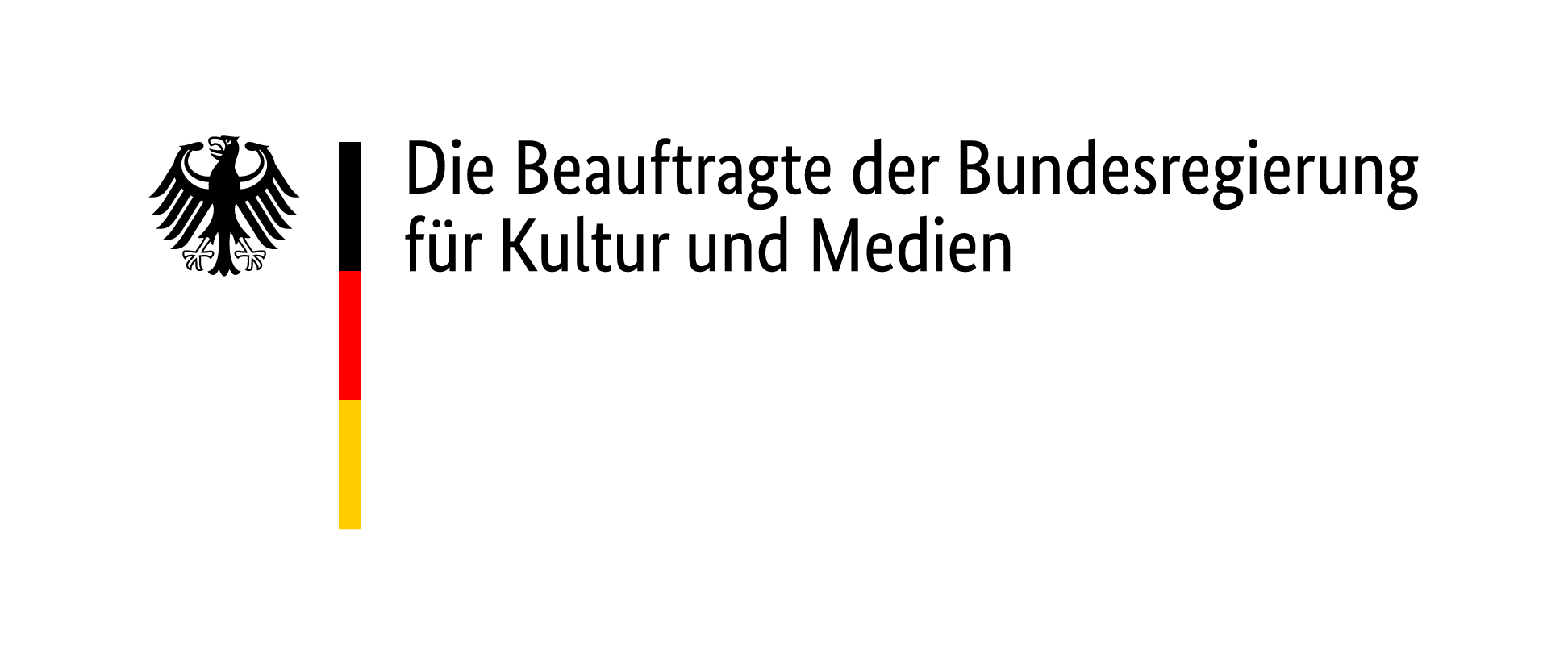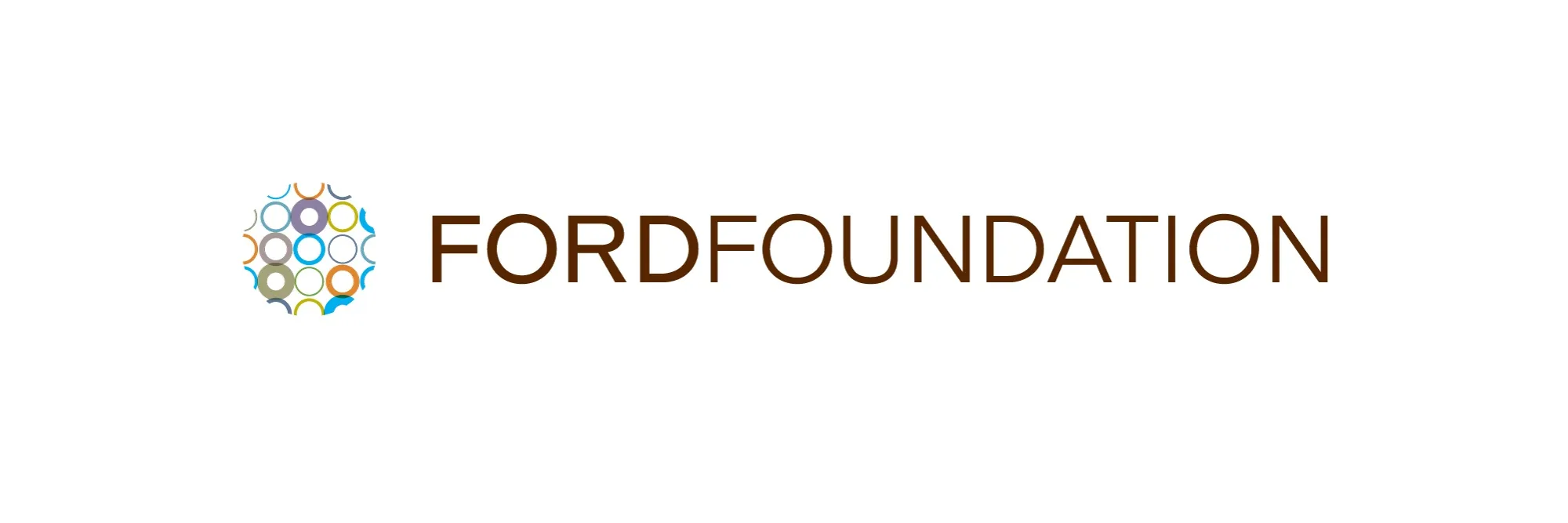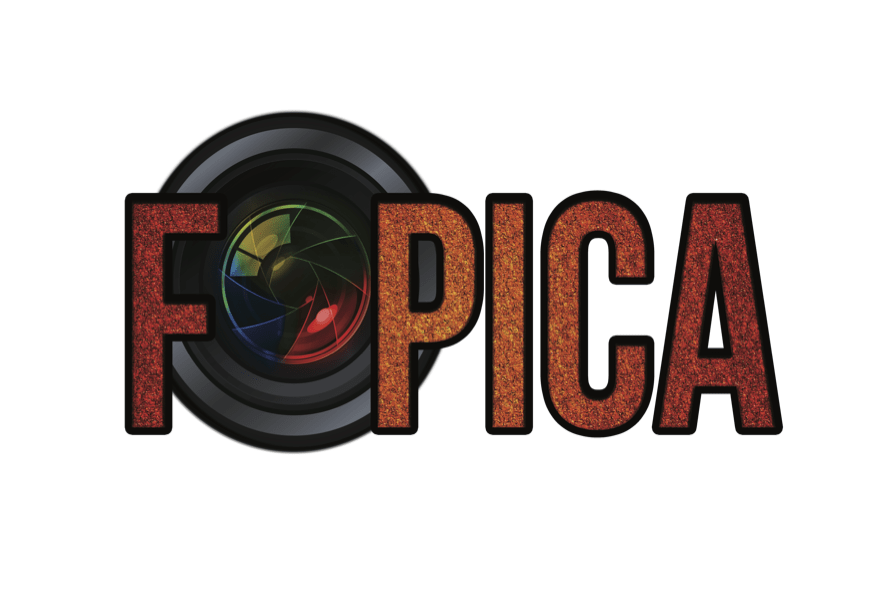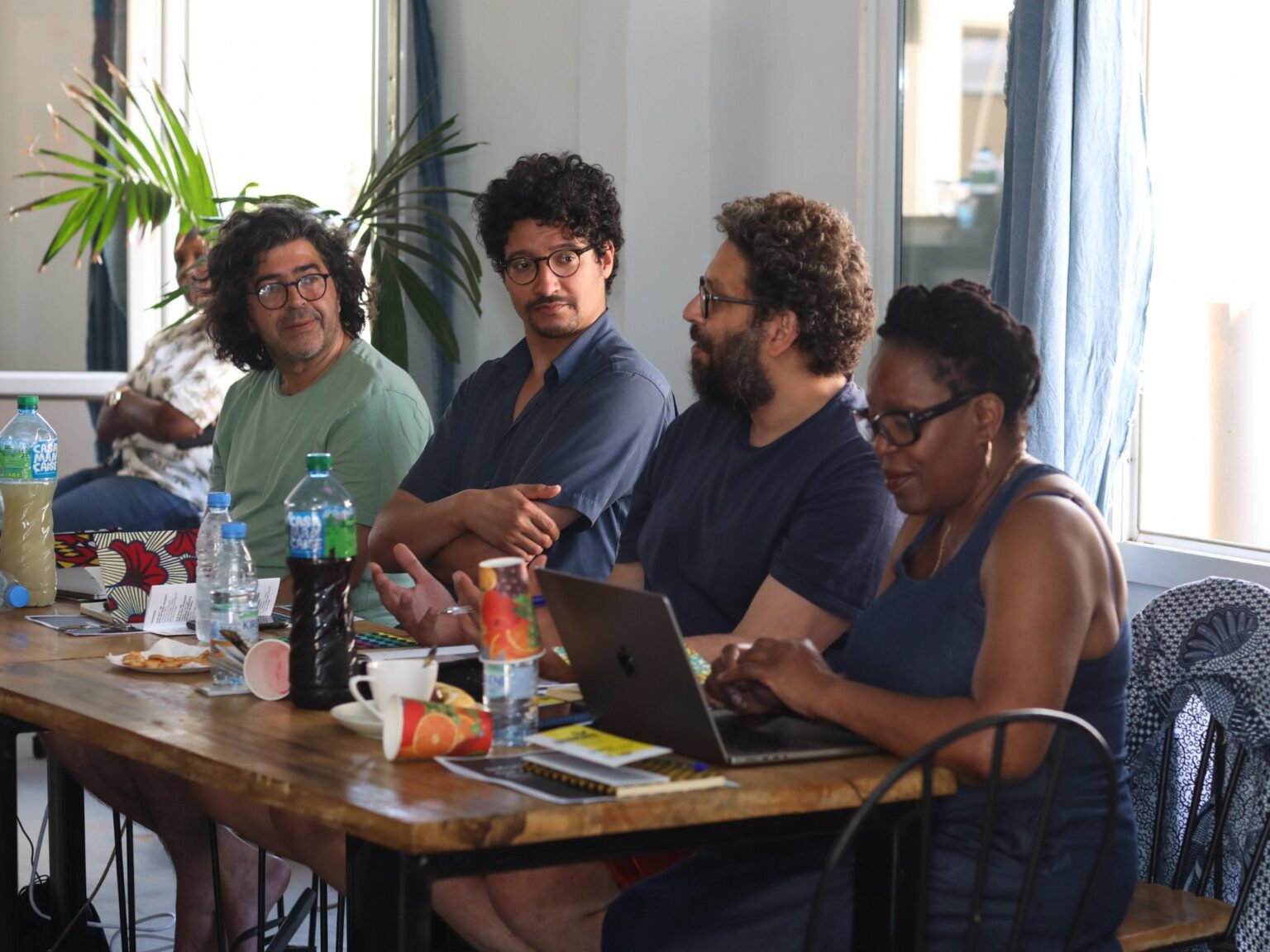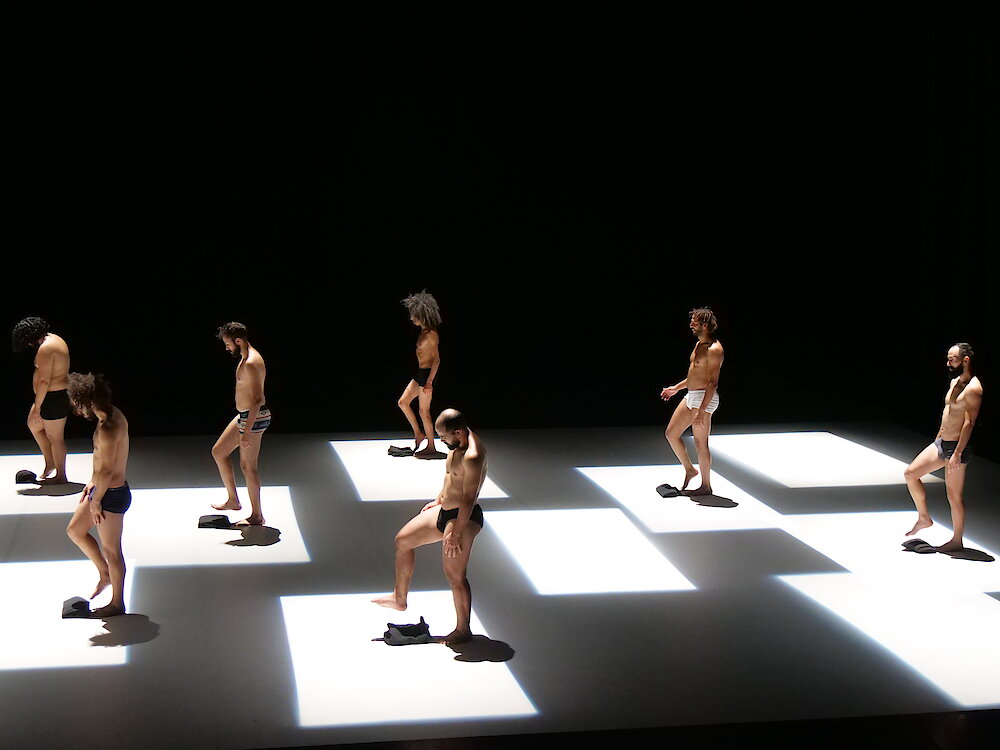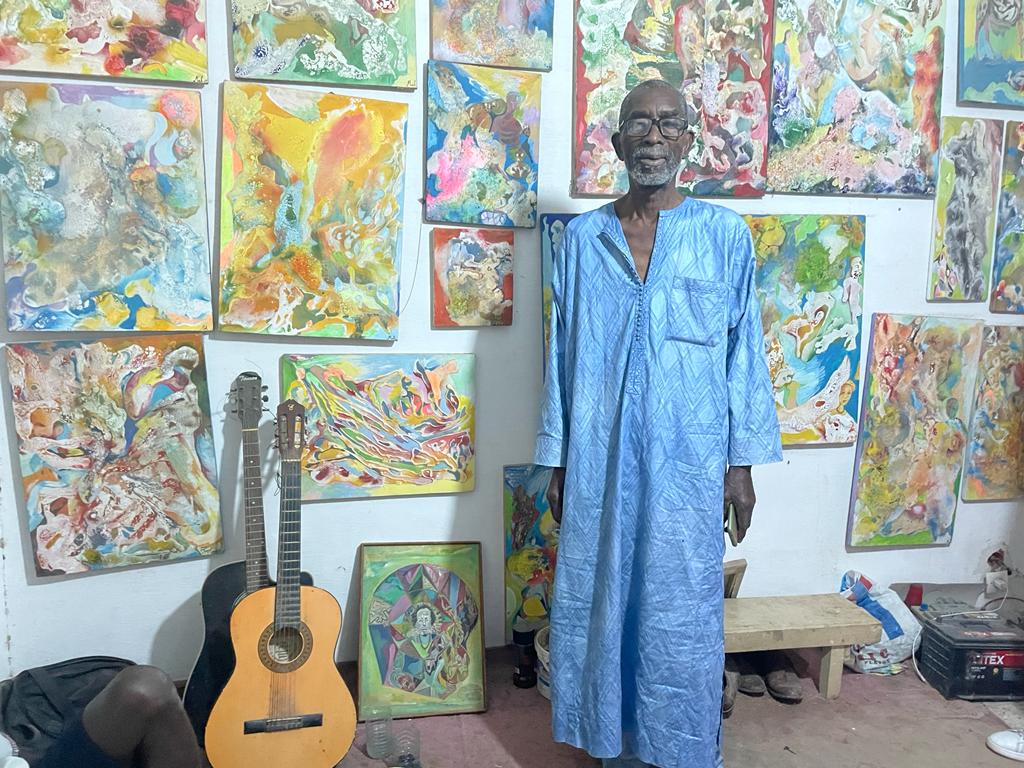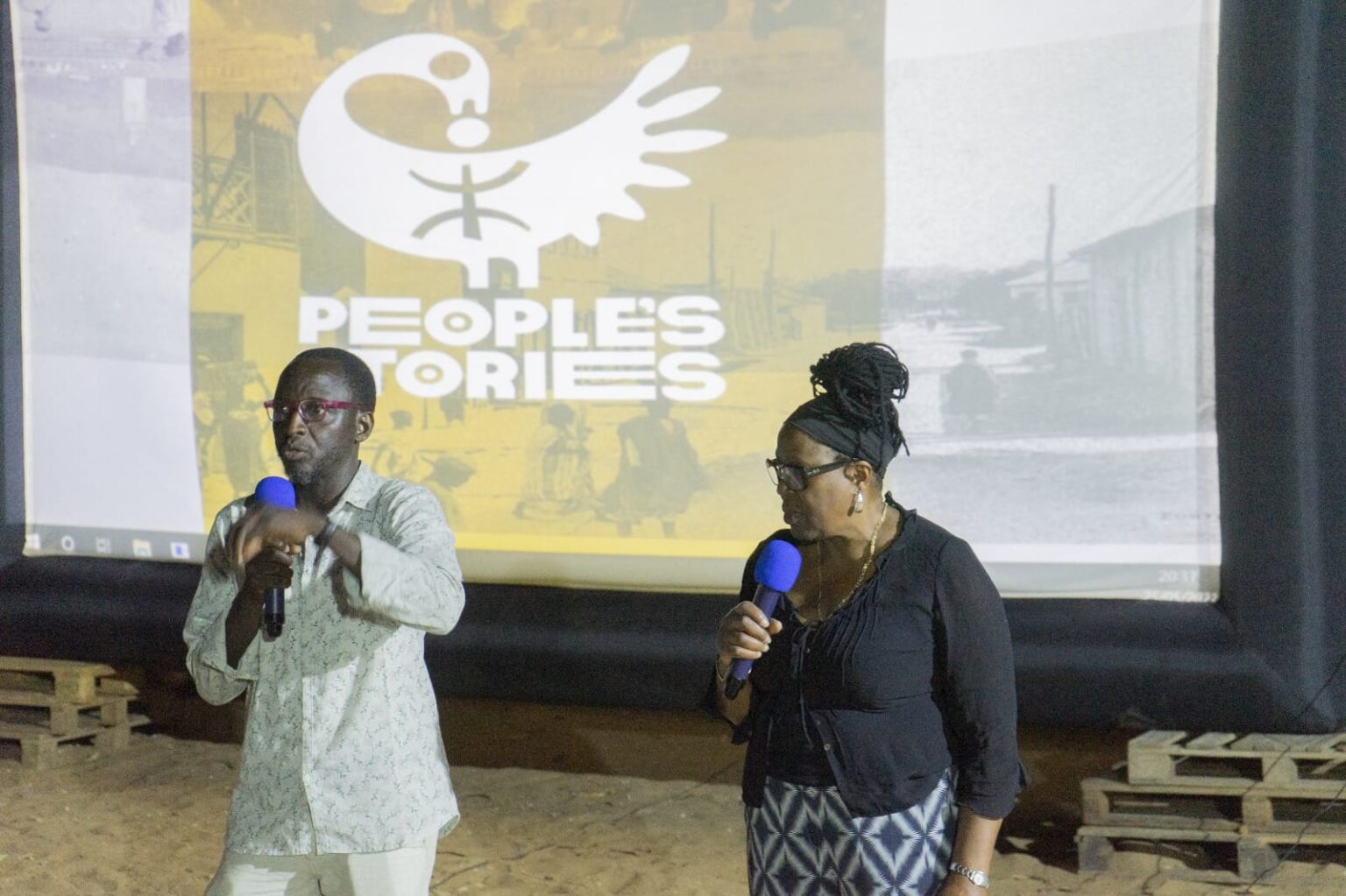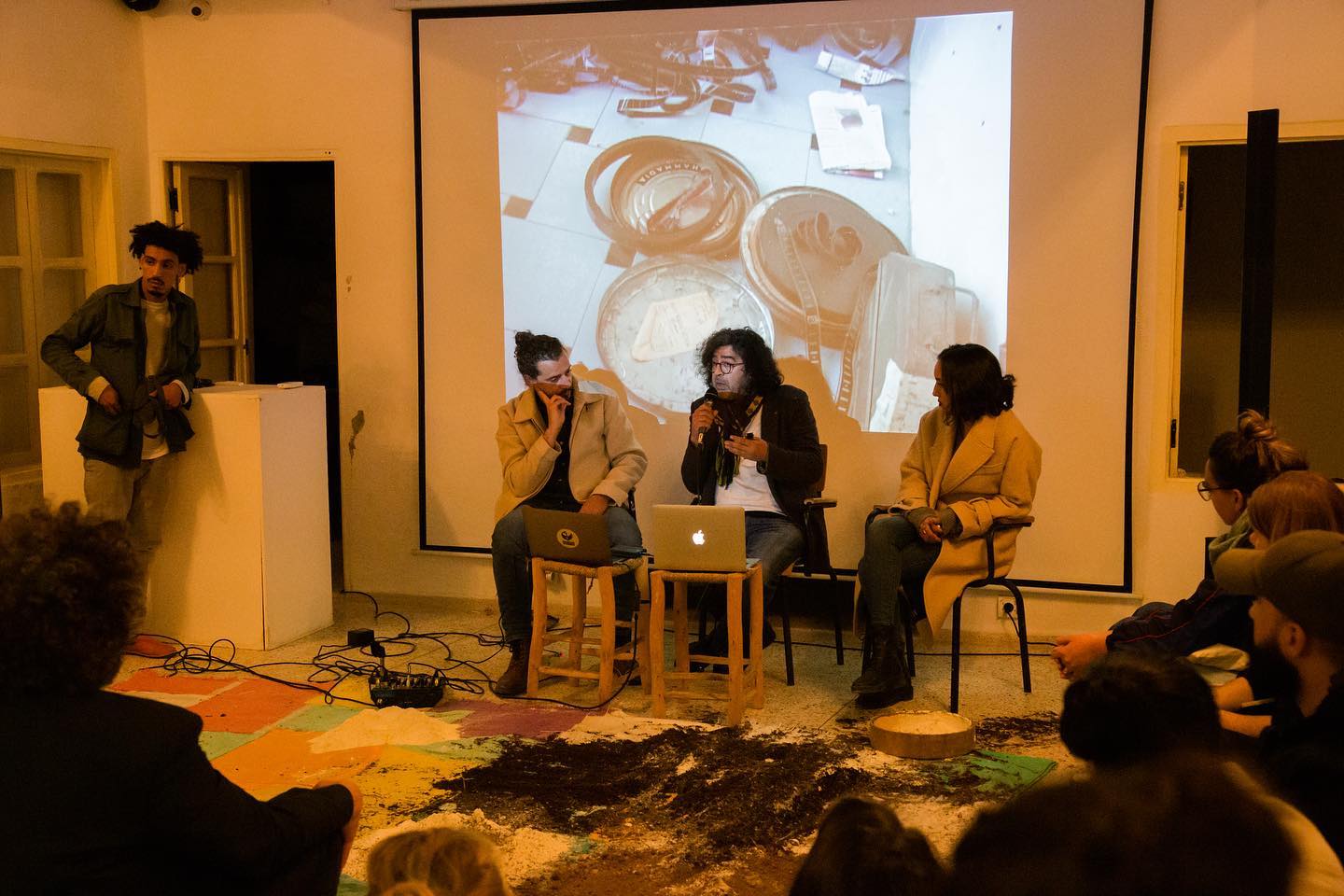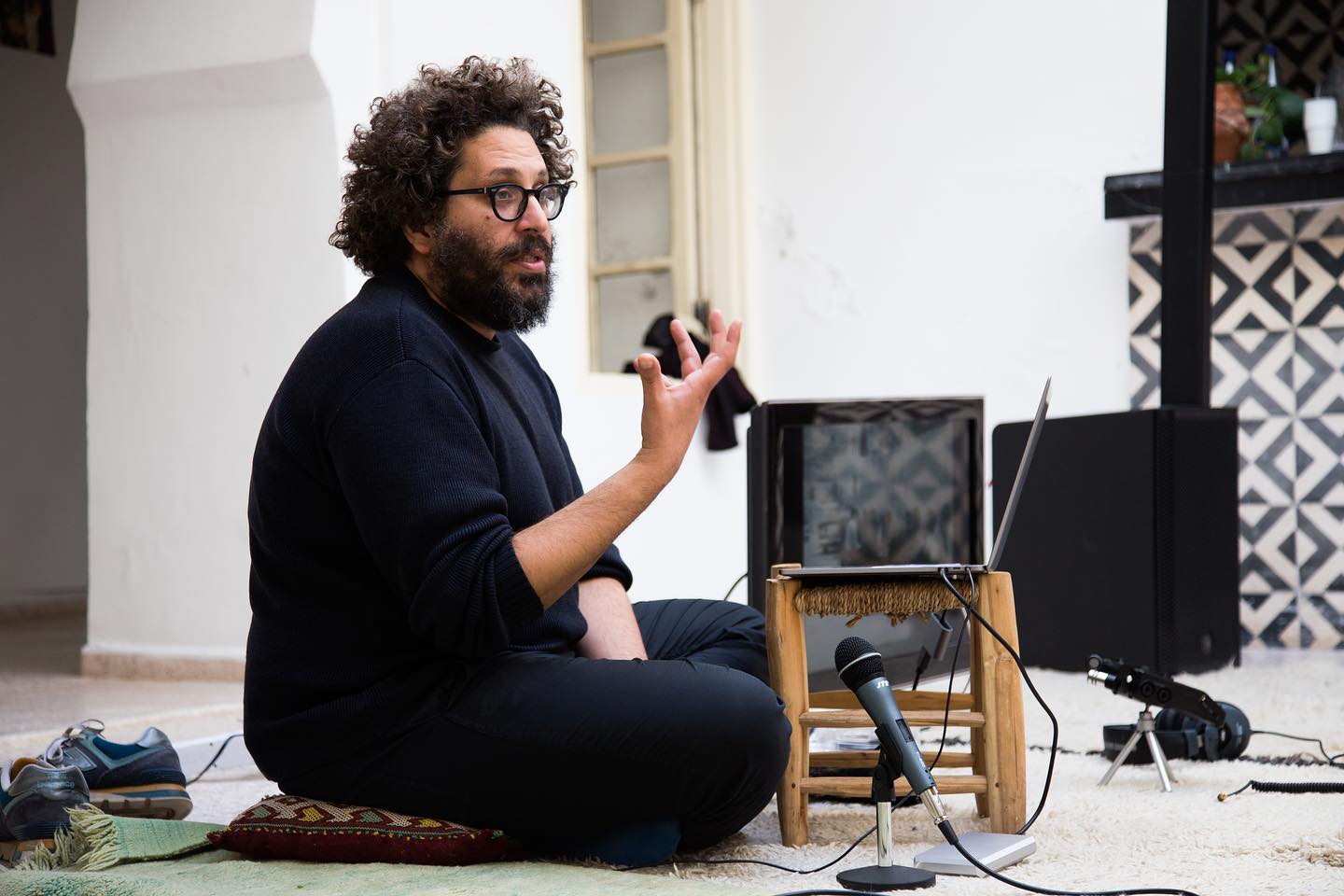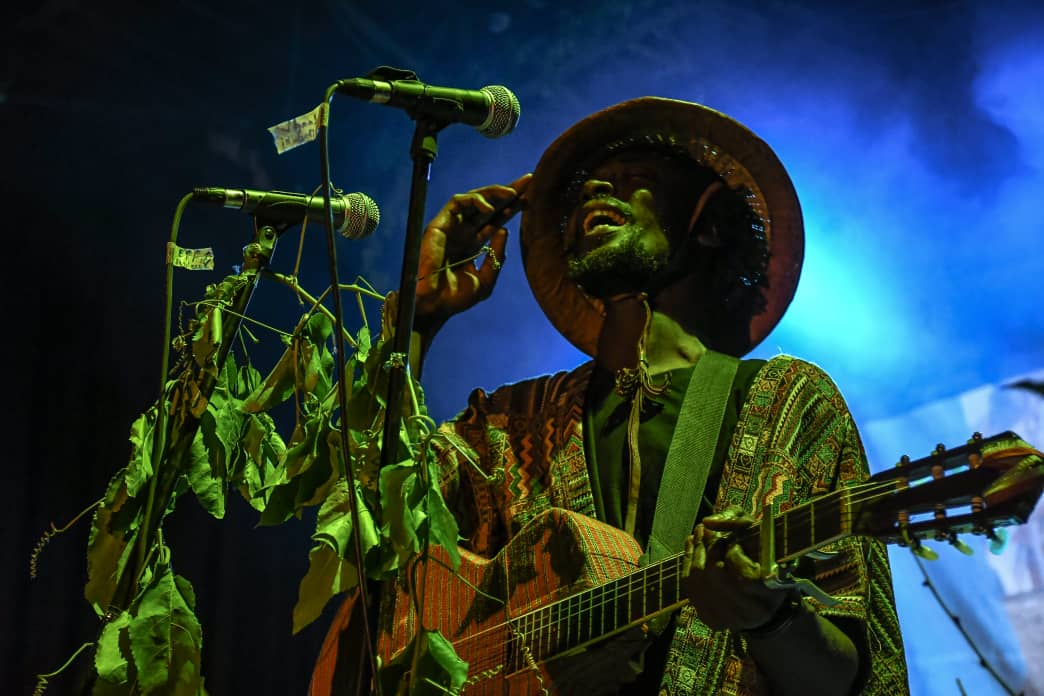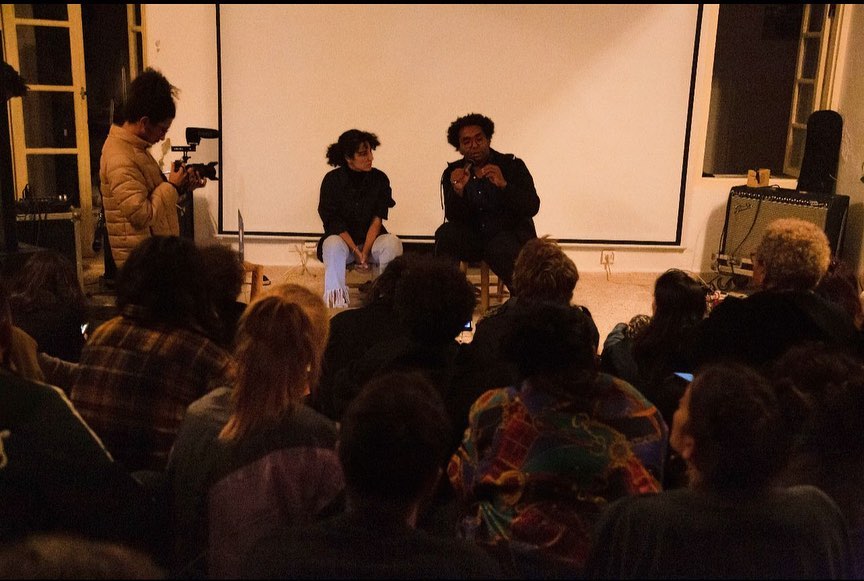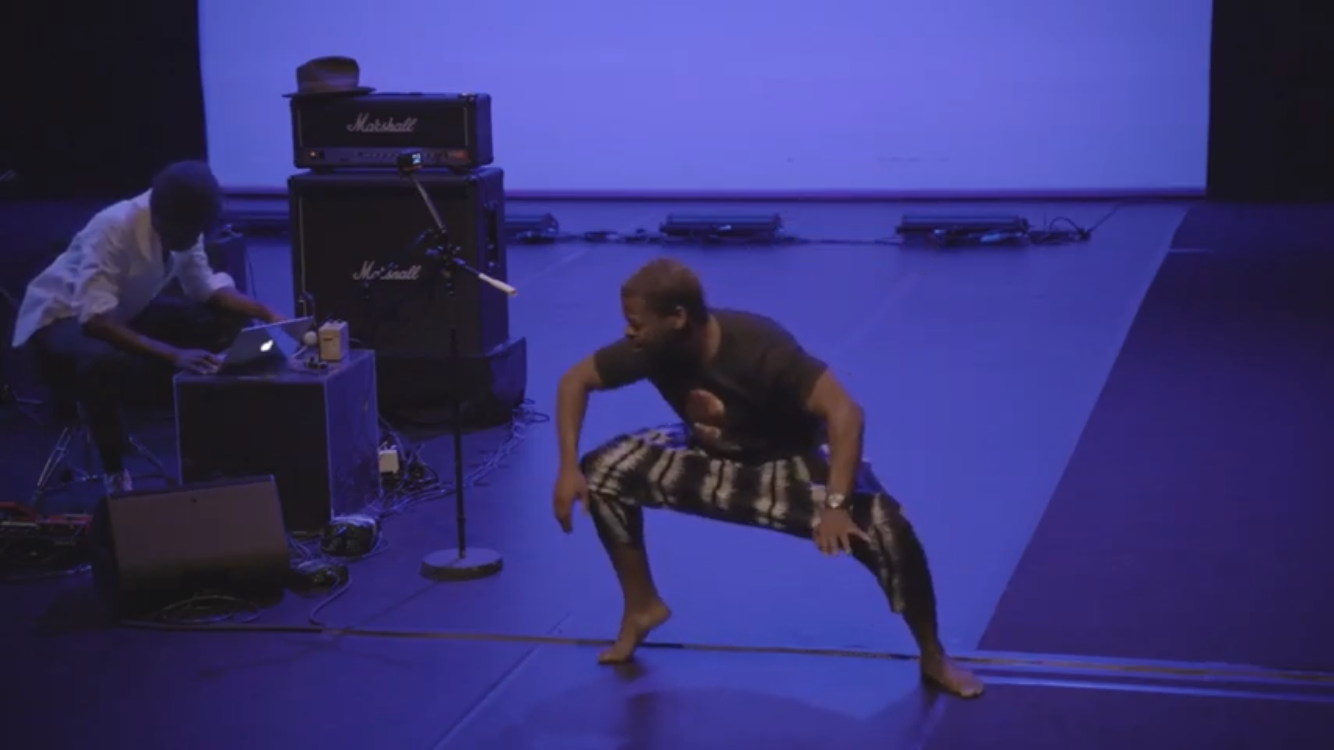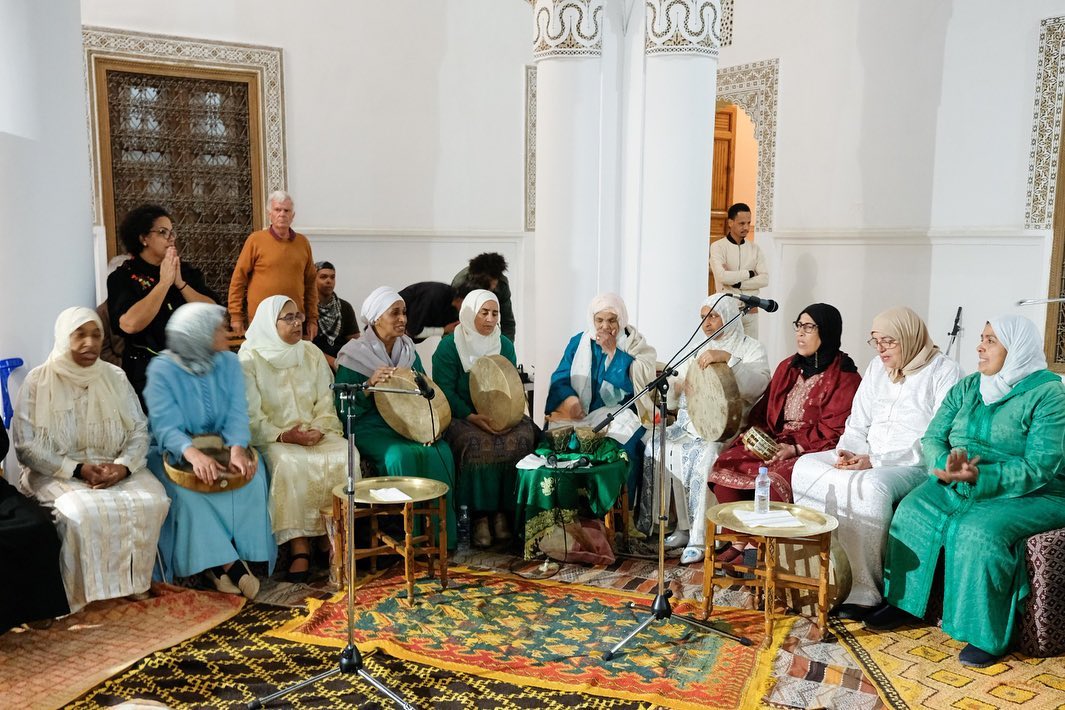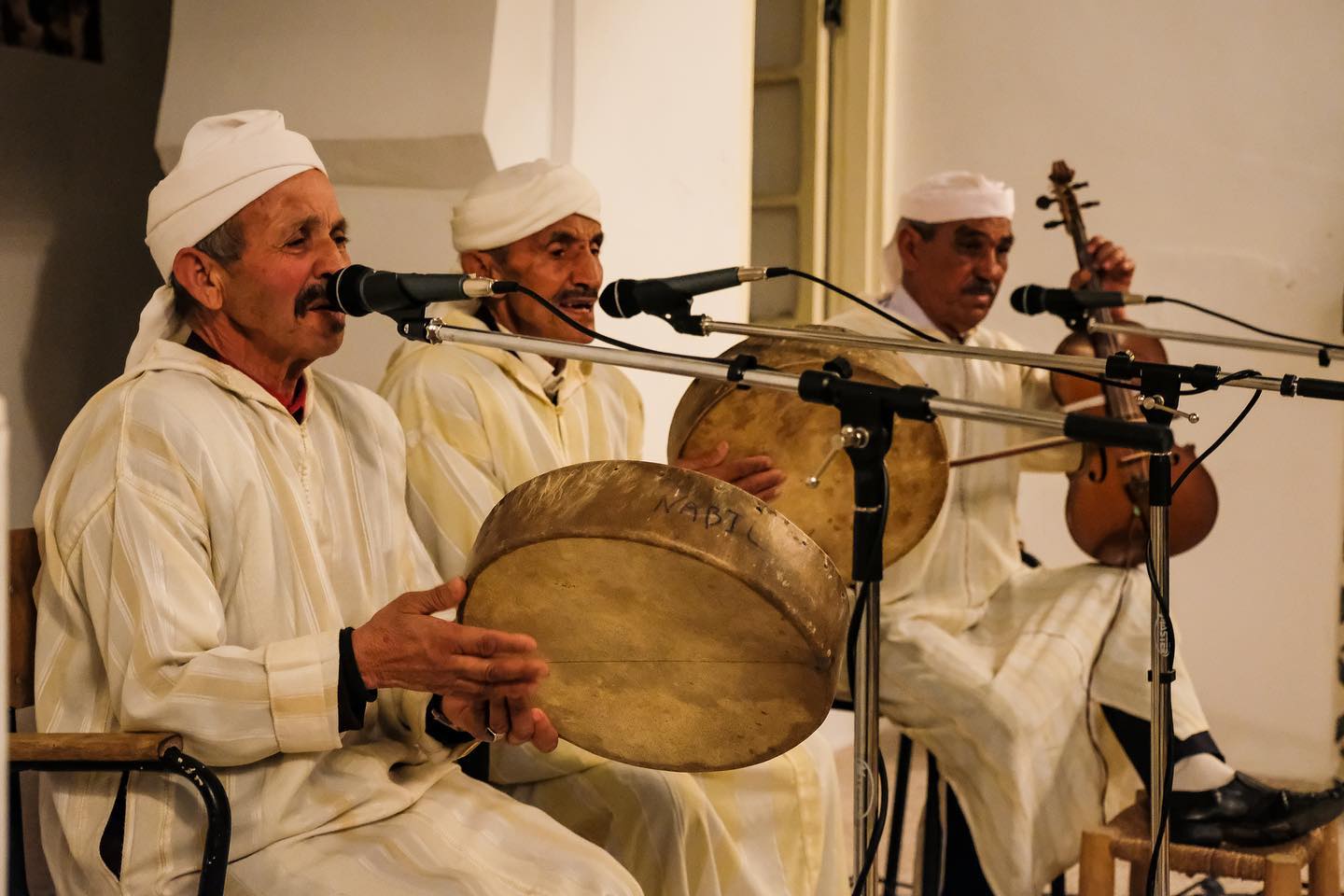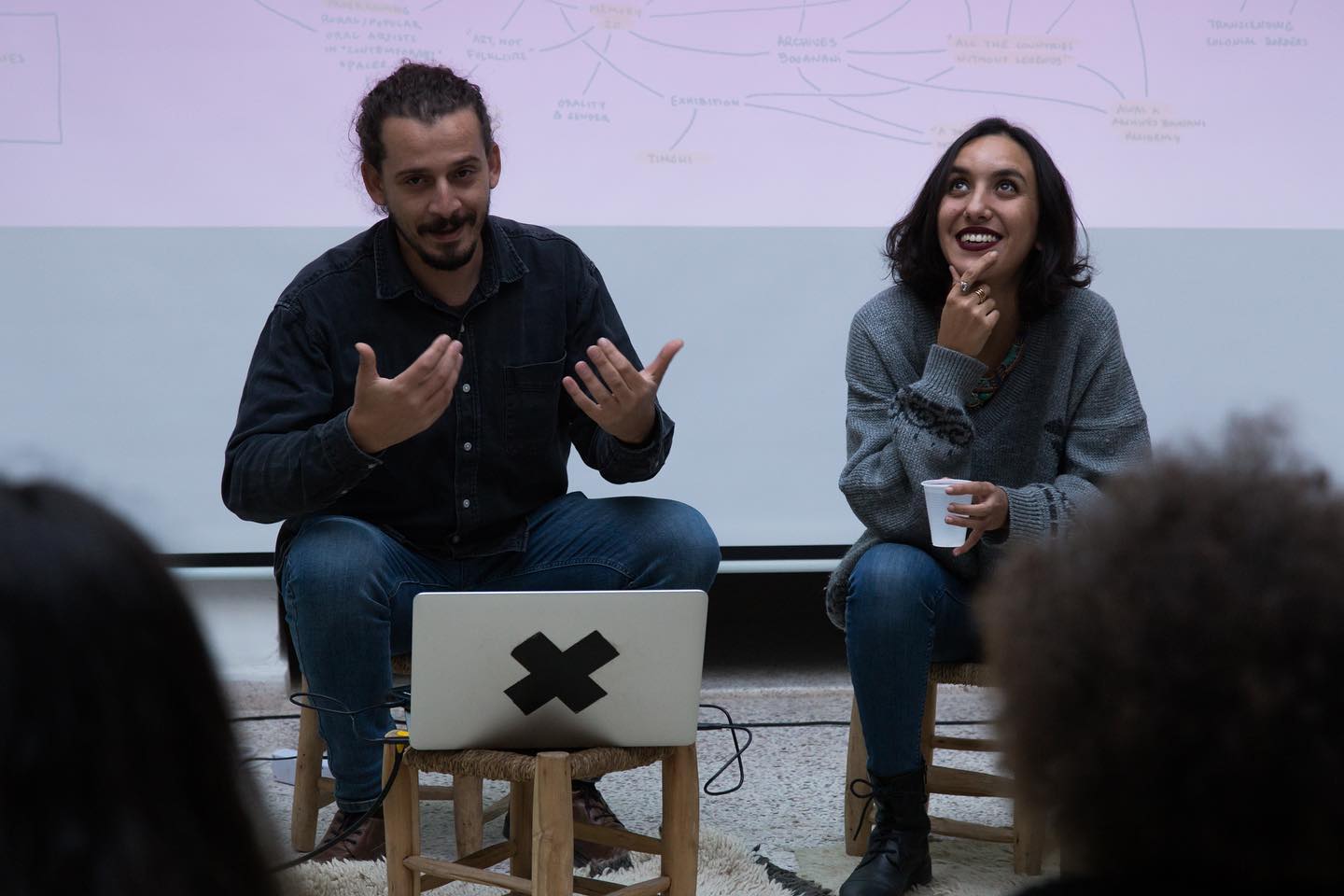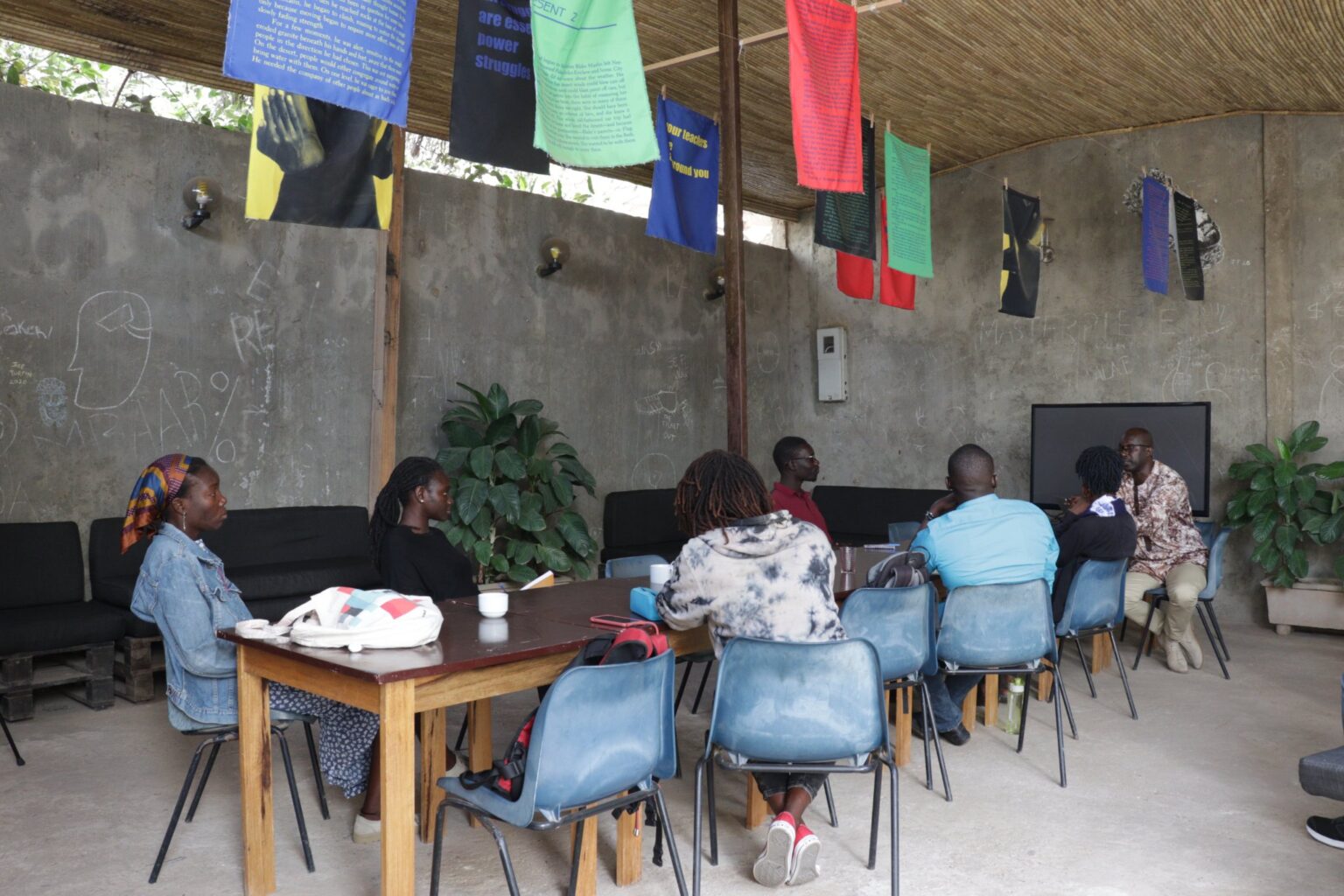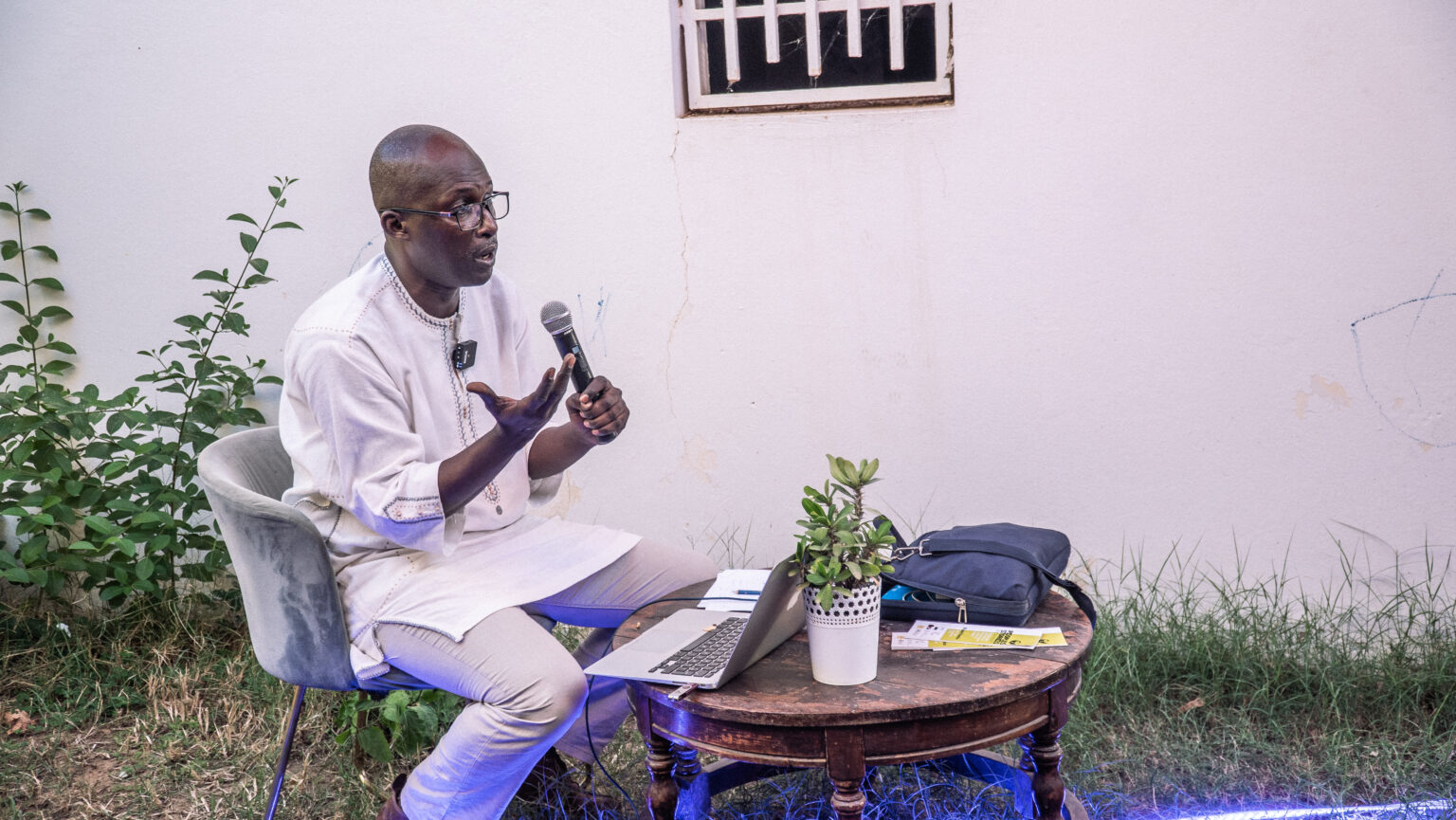2020-2023
Research Project | Visual Contributions | Exhibition Formats | Public & Online Debates | Rights and Restitution symposium | Mapping | Podcast | Screenings | Ecole du Soir
People’s Stories- Past and Present: Bridging the silenced and liminal spaces of African Imagery is a multi-disciplinary art and culture project bringing together archive researchers, artists and filmmakers to interpret, rethink and reappropriate the archive. Engaging with the archive is not to simply delve into history and memory in order to look backwards but rather to use that past knowledge – the parts we can unearth of it – as a tool to reinterpret our current reality and reimagine an alternative future. The current debates on restitution open a gap that requires research and appropriation of images that have been silenced and disconnected from their lineage. Thus, engaging artistically with images and sounds of our past is a formula to help design a new grammar in order to revisit and re-write history from a Southern perspective.
COLLABORATION was proposed as a possible tool for restoring the interrupted and severed connections between the generations and the geographies of Africa, including the artificial schism between the South and the North of the African continent . THE PERSPECTIVE was inherently from the South seeking to invert the gaze that captured the images and held them hostage. RESTITUTION and the decolonization of the image was the building site of multiple intersecting pathways attempting to reconnect official History (both colonial and post-colonial) with people’s Memory. The role of the artist’s memory in making or re-making the archive was fundamental, for who else is better placed to ensure an uninterrupted chain of social and political memory translating of yesteryear’s legacy into today’s vocabulary.
Regional Links
Interconnections between the peoples on the African continent are age old and often forgotten; How do we restore spaces of cultural harmony that go beyond colonial borders to bridge the artificial divide between the South and the North of the African continent? Can commonalities and shared histories be resurrected through interrogating multiple formats of archive? This program attempted to do so through Senegal, Mauritania and Morocco as starting points. Senegal and Morocco for example have shared uninterrupted connections since the 16th century‒ the relations albeit turbulent ‒ are anchored in cultural and trade exchange dating back to the Saʼadi dynasty.
This multiplicity of telling a single tale from various vantage points inspires the multiple formats that were exhibited in both Europe and Africa in 2022 and 2023.
February-April 2022
The Archive Research program started successfully in February 2022, bringing together 6 Senegalese Archive researchers and 3 Senegalese Filmmakers producing archive-based audiovisual works. The archival research phase consisted of an engaging theoretical component with archive experts, lecturers, academics, artists and thinkers. The 8-week phase was based on a series of lectures with screenings that were followed by discussions. The content of each session was carefully selected to cover the different aspects of archival research and methodologies for using archives. Each session concluded with screenings of archival films carefully selected to illustrate the previous session.
Throughout the first eight weeks, archival researchers and filmmakers engaged in hands-on exercises designed to impart knowledge on topics such as: alternative archival methods and practices, research methodologies, activating archival locations, tracking and tracing of acquisition rights. Each week ended with the most important articulation of this phase - École du soir (night school) which offers a space for learning and questioning. The format of École du soir is a tool that DOX BOX uses in its various ongoing programs. The École du soir takes its name from a quote by Senegalese filmmaker Ousmane Sembene describing cinema as the evening school of the masses.
Similarly, the École du soir space during this phase of our program "People's Stories - Past and Present," addressed issues such as: identifying representation in the archive, how to decolonize the archives, archives as a space for dialogue, how to reinsert the missing image, and tools for contextualizing narratives. It is in this space that filmmakers, artists, performers and researchers chose elements/images/documents and ideas with images/documents and ideas they want to engage with.
Participating filmmakers included: Hamedine Kane (Visual Artist/ Filmmaker), Ibaaku (Musician/ Filmmaker), filmmaker Maky Madiba Sylla (Musician/filmmaker). Researchers included: Malick Seck, Ndeye Fatou Thiam, Ndeye Mane Toure, Sada Kane, Tabara Korka Ndiaye and Fode Diakho.
Talks, screenings and exchanges in the frame of the program were happening with Jihan El-Tahri, Ali Essafi, Omar Berrada, Ibrahima Wane, Malick Ndiaye, Felwine Sarr, Lea Forestier, Kader Attia, Sahbi Kraiem, Lea Morin and Nabil Djedouani.
May 2022
The project invited participating filmmakers, artists, researchers and curators to meet for a week-long Agora on the occasion of the Dak'Art Biennial at Senegal in May 2022. People's Stories- Past and Present was part of the official Dak'Art OFF program which took place in the three partner spaces: RAW Material Company, Yennenga Center and KENU – LAB’Oratoire des Imaginaires. Contributions to the Biennale OFF revolved around screenings, a round table on different aspects of archives, a performance based on sound archives, as well as an exhibition of declassified archives by Assia Boundaoui.. The first two days of the Agora week were reserved for a session of brainstorming attended by all participants of the People's Stories project to discuss the nature, process and obstacles encountered during archival use.
Among the participants were filmmakers/artists with up to thirty years of experience in the field of archives, both in their country of origin and in colonial archives. The objective of this phase was to encourage and throw the foundations for a collaborative process among archival practitioners across the continent. Collective reflection and exchange, taking into account the multidisciplinary works which will be produced by the directors and the artists during the two years of the project, will make it possible to enrich the general knowledge base and to analyze images and themes from the archives of the African continent.
Participants were John Akomfrah, ALIBETA, Younès Baba-Ali, Jean-Pierre Bekolo, Ali Essafi, Ibaaku, Onyeka Igwe, Keziah Jones, Hamedine Kane, Maky Madiba Sylla, Kamila Metwaly, Katy Léna N’diaye, Qudus Onikeku, Assia Boundaoui, The Otolith Group (Kodwo Eshun and Anjalika Sagar) and Mohanad Yaqubi.
Curators conducting the AGORA with artistic head Jihan El Tahri were Marie Helene Pereira, Omar Berrada, Chiara Figone and film curator June Givanni.
November 2022
People’s Stories held a 4-day program of lectures, exhibitions, screenings and performances in Nouakchott, Mauritania from November 3rd to 6th 2022. This program was organized in collaboration with our local partners D’Art and Art Gallé. The program was well attended and engaged a local and international crowd.
The program addressed the preservation of immaterial patrimony through a diverse constellation of thematics and formats: from religious poetry, figurative painting and popular music, to the puppetry Festival au Désert in Mali, reimaginings of traditional Pulaar song, Madh performances, a screening of the musical West Indies by Med Hondo, to paintings that reflect on métissage. The four days closed with an open conversation about access to archives and how to create our own archives when the official channels are closed to us. It quickly became a space for young Mauritanians to express their frustrations with the erasure and lost histories of the Mauritanian context.
Participants included: Professor Ibrahima Wane, Mamadou Anne, Madani, TARANIM, Katy-Lena N’diaye, Maky Madiba Sylla, DJ Mansoul, Saleh Lo and Med Hondo.
November 2022
The Morocco iteration featured a four day program of exhibitions, lectures and performances, which took place in Marrakech from November 18th to 21st 2022. The program was conceived and realized in collaboration with our local partners Le18 and Dar Bellarj, as well as curator Omar Berrada.
Building on the two previous iterations in Mauritania and Dakar, the program focused on ritual and orality as archive, departing from a Moroccan vantage point, while engaging networks and connections beyond colonial borders. From the spiritual chants of the Hadra, the Moroccan Sufi ritual of the Hmadcha brotherhood, the Amazigh ballads recounting the past and present life in the Atlas mountains, the ancestral women's musical practices from Chragua (north west of Fes), the musical conversation of Gnawa and Yerouba rhythms, the popular songs and chants that constitute the soundtrack of a film, to the Halqa and its storyteller, the different works presented drew on the oral tradition, weaving an embodied, polyphonic archive that speaks of anti-colonial resistance, militancy, climate change and relationship to land, invoking transnational networks and commonalities.
All events saw a great turn out and wide public participation and engagement. And working with two spaces allowed accessibility to different audiences, enriching the entire experience and inspiring complex and nuanced conversations. The interaction between participants who were present in the Dakar phase with the new participants who joined in Morocco also led to an embodied experience of one of the main tenets of the program: bridging the historically constructed gap between the North and South of the African continent.
Participants included: Maha El Madi, Laila Hida, Kamila Metwaly, Taoufiq Izeddiou, Maalam Younes Hadir, Keziah Jones, Mohanad Yaqubi, Soumeya Ait Ahmed, Nadir Bouhmouch, Imane Zoubai, Ali Essafi and Cheikh Hammou Troupe.
People’s Stories - Past & Present used multi-disciplinary art and culture formats and invited archive researchers, artists and filmmakers to come together to interpret, rethink and re-appropriate the archive.
Join us on an audiovisual online journey to explore the project's various iterations, from Senegal to Mauritania and Morocco.
With The Support Of

